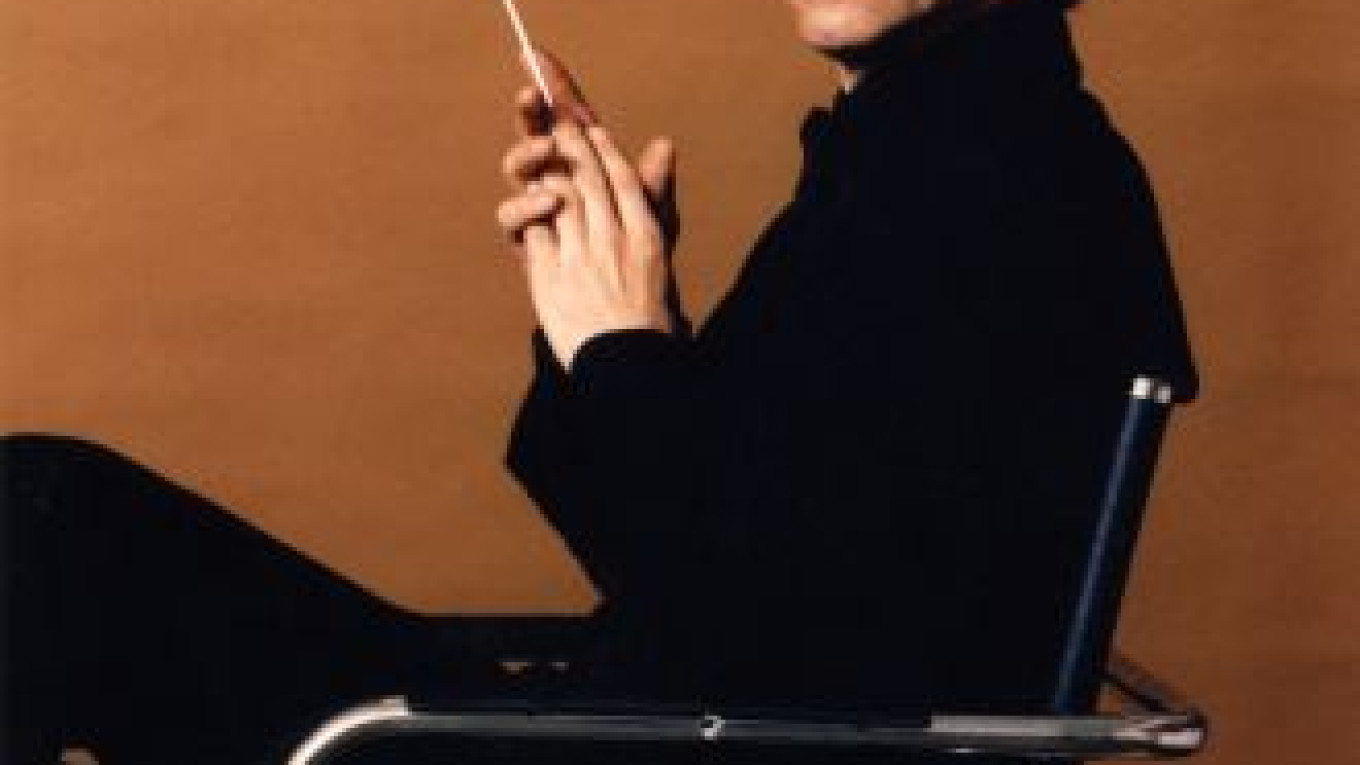The post-holiday musical season gets off to a start this week with the sixth annual festival entitled “Epiphany Week at Novaya Opera,” which honors the anniversary of the birth of Novaya Opera’s late revered founder, Yevgeny Kolobov, and — its title notwithstanding — extends from Thursday until the end of the month.
Kolobov was born in 1946 on Jan. 19, the day that the Russian Orthodox Church celebrates the Feast of the Epiphany. His career took him from Yekaterinburg to St. Petersburg, and eventually to Moscow, where he served briefly as chief conductor of the Stanislavsky and Nemirovich-Danchenko Musical Theater. In 1991, Kolobov founded Novaya Opera, which he led with great distinction until his death in 2003.
This year’s “Epiphany Week at Novaya Opera” opens with English composer Benjamin Britten’s “War Requiem,” a massive work dedicated by Britten to four friends who perished in World War II, which sets to music both the words of the Latin Mass for the dead and — interspersed among the sections of the Mass — nine poems by the great English poet of World War I, Wilfred Owen.
The first performance of the “War Requiem” took place in 1962 at the consecration of the new Coventry Cathedral, in England, constructed next to the ruins of its 14th-century predecessor, which was destroyed in a German bombing raid some 22 years earlier. Originally scheduled to sing the solo parts, as a symbol of reconciliation between wartime enemies, were a Russian soprano, an English tenor and a German baritone. But Soviet authorities refused permission for the soprano in question, the renowned Galina Vishnevskaya, to take part. English soprano Heather Harper acted as her substitute.
Like the premiere, Novaya Opera’s performance of the “War Requiem” will include two English soloists, tenor Thomas Walker and baritone Gavin Carr, together with Natalya Kreslina, one of the best among Novaya Opera’s excellent team of sopranos. Leading the score will be English maestro Jan Latham-Koenig, whose conducting of Novaya Opera’s production of Richard Wagner’s “Lohengrin” at its premiere two years ago was instrumental in causing it to be hailed by many as the high point of Moscow’s 2007-2008 operatic season.
Gennady Rozhdestvensky, the dean of Russian conductors, is highly regarded as an interpreter of the works of Anton Bruckner and, on Jan. 18, together with the Novaya Opera orchestra, will bring his interpretive skills to bear on Bruckner’s Symphony No. 3, which was dedicated by the composer to Richard Wagner and contains many allusions to Wagner’s music. Also on the program are Beethoven’s familiar “Leonore” Overture No. 3 and his Fantasy for Piano, Chorus and Orchestra — a precursor of the composer’s Choral Symphony No. 9 — which begins with a long improvisatory piano solo and ends in a joyful outburst by chorus and orchestra.
Verdi’s opera “Il Trovatore” hasn’t been heard in Moscow since the Bolshoi Theater mercifully retired its old 1972 production approximately a decade ago. The great tenor Enrico Caruso once remarked that all that “Il Trovatore” requires for its success are the four greatest singers in the world. Novaya Opera’s concert performance Jan. 22 certainly won’t offer that sort of luxury casting, but considering that the theater boasts what is without much doubt the strongest roster of soloists of any Moscow opera company, the performance seems likely to be a memorable one.
The noted English director Elijah Moshinsky’s sparkling version of “The Barber of Seville” surely ranked among the best of last season’s new opera productions (though, curiously enough, it failed to receive a nomination for one of this year’s Golden Mask awards). A true delight from start to finish, the production may prove better than ever at its festival performance Jan. 24, when an acclaimed young tenor and an experienced basso buffo from Italy join its cast, and an Italian conductor of considerable worldwide reputation, Antonello Allemandi, is due to preside in the orchestra pit.
The festival comes to an end Jan. 30 and 31 with a new staging of Tchaikovsky’s final opera, “Iolanta,” by Gennady Shaposhnikov, who made his debut as an opera director at last year’s festival with a wonderfully madcap version of Giacomo Puccini’s “Gianni Schicchi,” a production that the Golden Mask festival has seen fit to award one of this year’s nominations.
Also on the festival agenda are the theater’s now-venerable staging of Tchaikovsky’s “Eugene Onegin,” one of the few truly outstanding productions of opera to appear in Moscow during the 1990s, the annual festival concert of romances by Tchaikovsky and Sergei Rachmaninov, sung to orchestral accompaniments arranged by Kolobov from the original accompaniments for piano, and a program of chamber works for solo voice and orchestra especially dedicated to Kolobov’s memory.
“Epiphany Week at Novaya Opera” takes place Jan. 14-31 at Novaya Opera Theater, located at 3 Karetny Ryad. Metro Mayakovskaya, Chekhovskaya. Tel. 694-0868, www.novayaopera.freeland.ru.


